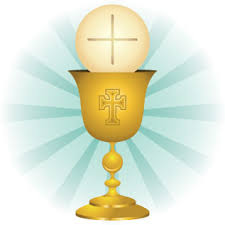Baptism
For Catholics, the Sacrament of Baptism is the first step in a lifelong journey of commitment and discipleship. Whether we are baptized as infants or adults, Baptism is the Church's way of celebrating and enacting the embrace of God.
Holy Baptism is the basis of the whole Christian life, the gateway to life in the Spirit and the door which gives access to the other sacraments. Through Baptism we are freed from sin and reborn as sons of God; we become members of Christ, are incorporated into the Church and made sharers in her mission:
Baptism is the sacrament of regeneration through water in the word.
-Catechism of the Catholic Church
The infant baptism is conducted after every two months at St. Monica Catholic church Njiru Parish and is preceded by classes for the parents and God parents.
Reconciliation.
The Catholic Sacrament of Reconciliation (also known as Penance, or Penance and Reconciliation) has three elements: conversion, confession and celebration. In it we find God's unconditional forgiveness; as a result we are called to forgive others.
Those who approach the sacrament of Penance obtain pardon from God's mercy for the offense committed against him, and are, at the same time, reconciled with the Church which they have wounded by their sins and which by charity, by example, and by prayer labors for their conversion.
- Catechism of the Catholic Church

“To go to Confession is to encounter the love of Jesus with sincerity of heart and with the transparency of children, not refusing, but even welcoming the “grace of shame” that makes us perceive God’s forgiveness.” – Pope Francis
There are four steps in the Sacrament of Reconciliation:
We feel contrition for our sins and a conversion of heart to change our ways.
We confess our sins and human sinfulness to a priest.
We receive and accept forgiveness (absolution) and are absolved of our sins.
We celebrate God’s everlasting love for us and commit to live out a Christian life.
Sin hurts our relationship with God, ourselves and others. As the Catechism states:
The sinner wounds God’s honor and love, his own human dignity…and the spiritual well-being of the Church, of which each Christian ought to be a living stone. To the eyes of faith no evil is graver than sin and nothing has worse consequences for the sinners themselves, for the Church, and for the whole world. (CCC 1487, 1488)
A mature understanding of sin includes reflecting upon our thoughts, actions and omissions as well as examining the patterns of sin that may arise in our lives. With contrite hearts, we are also called to reflect upon the effects of our sins upon the wider community and how we might participate in sinful systems.
Contrition and conversion lead us to seek a forgiveness for our sins so as to repair damaged relationships with God, self, and others. We believe that only ordained priests have the faculty of absolving sins from the authority of the Church in the name of Jesus Christ (CCC 1495). Our sins are forgiven by God, through the priest.
The Spiritual effects of the Sacraments of Reconciliation include:
reconciliation with God by which the penitent recovers grace
reconciliation with the Church
remission of the eternal punishment incurred by mortal sins
remission, at least in part, of temporal punishments resulting from sin
peace and serenity of conscience, and spiritual consolation
an increase of spiritual strength for the Christian battle (CCC 1496)
Individual confession with a priest is the principal means of absolution and reconciliation of grave sins within the Church. The Sacrament of Reconciliation frees us from sinful patterns of behavior and calls us to complete conversion to Christ. Reconciliation heals our sins and repairs our relationships. God never tires of forgiving us.
St.Monica catholic church offers the sacrament of Reconciliation on _____________ from ___________ unless otherwise noted on the parish calendar.
Confirmation
Confirmation is a sacrament which imparts the grace of the Holy Spirit. In the ceremony of confirmation a cross is “drawn” on the forehead of the individual as the following words (the form) are said: “N. receive the gift of the Holy Spirit.” The newly confirmed responds: “Amen” and the peace is exchanged, “Peace be with you.” It is customary that a person to be confirmed choses a Confirmation saint and adopts their name. This is done to deepen our participation in the life of the saints and to imitate their virtuous life.
The grace that is imparted at Confirmation is called “sanctifying” in that it works upon one’s soul to bring about justification (salvation).
Judas, not the Iscariot, said to him, “Master, [then] what happened that you will reveal yourself to us and not to the world?”
Jesus answered and said to him, “Whoever loves me will keep my word, and my Father will love him, and we will come to him and make our dwelling with him. (Johh 14:22-23 NAB)
Confirmation shares with the whole of the sacramental life, the power to make us Holy. This kind of grace can be lost! Mortal sin moves us away from God and his gift of grace. Remember that God is a God of justice and he does not merely ignore our serious infractions. We seek God’s mercy and forgiveness in all the sacraments. God is always ready to forgive us.
It is hard to know or understand the actions and gifts of the Holy Spirit. The supernatural character of the Holy Spirit puts an unfortunate distance between us and God. Among the various themes that can be identified in the Acts of the Apostles concerns the Holy Spirit. He provides the direction and protection of the first Christians. Paul’s work to establish Churches all over the Mediterranean is clearly seen as being the result of their obedience to the Holy Spirit.
Still it is possible to misunderstand the actions of the Holy Spirit. Questions arise, especially concerning the unfortunate but frequent abandonment of the faith that is planted in the hearts of the faithful at their Baptism. How many times have we all noticed those who seem lifeless when it comes to living the Christian life, even though (and this is the issue here) they had receive the powerful grace of the Holy Spirit. It is as if you were assigned a moving company at your Confirmation, whose job is to transform your house (soul). They have to move a lot of things out in order to make room for the virtues of the Christian life. So they go to work moving out vice and darkness and moving in grace and virtue.
At one point of the furniture movers (angels if you like) picks up a beautiful rocking chair, one that has been in the family for a hundred years. And you say, “Excuse me. I know you are doing a very fine job and I can’t tell you how much I appreciate it. But that one piece there is one that we have had in the family for a very long time and I am very attached to it. Could you let me enjoy it just a little longer? And the angel carefully puts it down and with surprising strength he picks up a huge oversize chair. Once again there comes the little voice that seems to have grown weaker as the spectacle continues. Piece after piece until finely one of the brighter angels comes over and very gently takes you aside and explains that there won’t be room for the virtues if we do not move out most all of the things of your own life. And they will go out and sit on the curb until you are ready. As you turn back to your little house (you tiny soul) things look a lot smaller.
Confirmation is about letting God in.
Eucharist
The Eucharist Is Sacrifice, A Sacrament, And Communion
What Jesus said about himself:
“I am the bread of life. Your fathers ate the manna in the wilderness, and are dead. This is the bread which comes down from heaven that one may eat of it and not die. I am the living bread which came down from heaven. If anyone eats of this bread, he will live forever; and the bread that I shall give is my flesh, which I shall give for the life of the world.” John 6:41-51
From the Second Vatican Council:
However, no Christian community is built up which does not grow from and hinge on the celebration of the most holy Eucharist. From this all education for community spirit must begin. This Eucharistic celebration, to be full and sincere, ought to lead on the one hand to the various works of Charity and mutual help, and on the other hand to missionary activity and the various forms of Christian witness. Presbyterorum Ordinis, the Second Vatican Council’s Decree on the Ministry and Life of Priests (article 6).
From the Catechism of the Catholic Church:
So rich is the mystery of the Eucharist that we have a number of terms to illumine its saving grace: the Breaking of the Bread; the Lord’s Supper; the Eucharistic Assembly; the Memorial of Christ’s Passion, Death, and Resurrection; the Holy Sacrifice of the Mass, the Holy and Divine Liturgy; the Eucharistic Liturgy; Holy Communion; and Holy Mass (cf. CCC, nos. 1328-1332).
Notable Sayings on the Eucharist:
“The Eucharist is the consummation of the whole spiritual life.” – St. Thomas Aquinas
“Christ gives his Body and Blood for the life of humanity. And all those who nourish themselves worthily at his table become living instruments of his love, mercy, and peace.” – Blessed John Paul II
“When you look at the Crucifix, you understand how much Jesus loved you then. When you look at the Sacred Host you understand how much Jesus loves you now.” – Blessed Mother Teresa of Calcutta
Reception of the Eucharist:
Anyone who is conscious of grave sin may not receive the Body of the Lord without previously having been to sacramental confession, unless there is a grave reason and there is no opportunity to confess; in this case the person is to remember the obligation to make an act of perfect contrition, which includes the resolve to go to confession as soon as possible (Code of Canon law: 916).
Marriage
The Catholic Church requires that everyone who is married in the Catholic Church be prepared for their marriage In order to accomplish this in an orderly fashion and with adequate reflection, notice must be given to the parish six months prior to the desired date for the wedding. Call the parish offices at +254 736 414797 to set up a meeting with a priest.
If you have any questions or concerns, please come to the office on Tuesday between 8:00Am and 2:00PM
Anointing of the sick.
Through the sacrament of anointing, Christ strengthens the faithful who are afflicted by illness, providing them with the strongest means of support. Jesus showed great concern for the bodily and spiritual welfare of the sick and commanded his followers to do the same. The celebration of this sacrament is an opportunity for the deepening of the faith of the community who are able to witness the faith and devotion of those being anointed.
Holy Orders
Holy Orders is the sacrament by which bishops, priests and deacons are ordained and receive the power and grace to perform their sacred duties. The sacred rite by which orders are conferred is called ordination. The apostles were ordained by Jesus at the Last Supper so that others could share in his priesthood.
